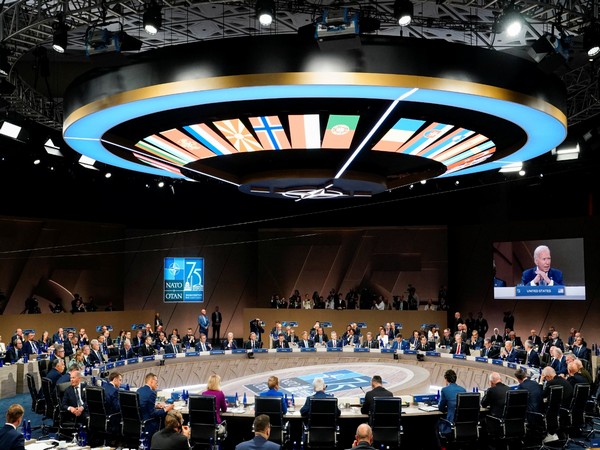China and NATO Deepen Indo-Pacific Cooperation Amid Major Power Competition
China and NATO aim to deepen cooperation with 'like-minded' countries in the Indo-Pacific and Europe, signaling intensifying US-China competition. NATO announced joint projects with four Indo-Pacific countries during its summit, while China initiated its own military exercises in response.

- Country:
- United States
China and NATO are taking steps to deepen cooperation with 'like-minded' countries in the Indo-Pacific and Europe, a move seen by analysts as part of the growing competition between the United States and China, Voice of America (VOA) reported. This development follows the NATO Summit in Washington, where deeper cooperation with allies in the Indo-Pacific was announced.
'[The latest development] is a standard major power competition,' said Ian Chong, a political scientist at the National University of Singapore. These efforts aim at 'finding out where are their friends and who can support their efforts,' he said, adding that competition between major powers is indeed intensifying.
During its annual summit in Washington, NATO revealed plans to launch four new joint projects with Japan, South Korea, Australia, and New Zealand. These projects will focus on collaboration regarding Ukraine, artificial intelligence, disinformation, and cybersecurity. US National Security Advisor Jake Sullivan stated that the goal is to 'harness the unique strengths' of democracies to address shared global challenges.
Beijing responded by accusing NATO of 'inciting bloc confrontation and hyping up regional tensions' through its engagement with Indo-Pacific countries. Some analysts believe NATO's efforts are more about involving like-minded countries to build competencies in essential areas of competition rather than expanding their footprint in the region.
'These are core areas that will shape military and other forms of competition moving forward, so NATO wants to establish more cooperation with like-minded democracies,' said Stephen Nagy, a regional security expert at the International Christian University in Japan. With NATO labeling China as 'the decisive enabler' of Russia's war against Ukraine, Nagy said the alliance aims to show Beijing it won't back down in global competition.
'NATO is signaling to China that they can be part of the solution, or they would be part of the problem,' he added. Japan's Foreign Press Secretary Maki Kobayashi noted that while Tokyo is working closely with NATO, these efforts should not be seen as an attempt to establish a NATO in Asia.
While the US and NATO allies aim to strengthen cooperation with Indo-Pacific countries, China is also boosting military cooperation with Belarus and Russia. On Monday, China began an 11-day joint military exercise near the Polish border with Belarus, a new member of the Shanghai Cooperation Organization (SCO). Although Beijing insists the exercise isn't targeting any country, some analysts view it as a response to NATO's growing interest in Asia, VOA reported.
In addition to the exercise with Belarus, China announced a joint naval exercise with Russia near Zhanjiang last week. Stephen Nagy believes Beijing is expressing its displeasure toward NATO's efforts to strengthen ties in the Indo-Pacific.
'China is signaling to NATO member states that they can cause headaches for them in their region or regions that matter to them,' he said. Besides aligning the dates of the military exercises with the NATO Summit, China used last week's SCO Summit in Kazakhstan to uphold its 'no limits partnership' with Russia and promote an alternative world order, according to VOA.
Experts believe that despite the SCO not being an alliance with a common goal, China will attempt to use it as a platform to 'build its own blocs' to counter NATO and weaken Western influence. 'China is strengthening these arrangements through bilateral agreements and strategic partnerships, which often include security,' noted Sari Arho Havren, an associate fellow at the Royal United Services Institute.
(With inputs from agencies.)










